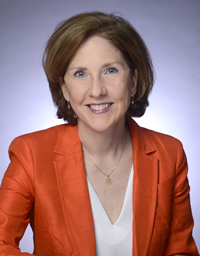Find a CBT Therapist
Search through our directory of local clinicians.
Betsy Kennard

Mentor Spotlight
Dr. Kennard is a Professor in the Department of Psychiatry at UT Southwestern Medical Center and Children’s Health, Dallas. She has expertise in pediatric depression and has served as a site co-investigator in three NIMH-funded multi-site treatment studies of adolescent depression and suicide, and co-authored CBT treatment manuals for these three studies. She also developed a CBT sequential treatment strategy to prevent relapse in youth with depression and was Principal Investigator in the NIMH-funded trials of this relapse prevention CBT intervention (since published by Guilford Press). More recently, Dr. Kennard is conducting an R34, “Brief Intervention for Suicide Risk Reduction in High Risk Adolescents,” in collaboration with David Brent at the University of Pittsburgh. This project aims to determine the efficacy of an inpatient intervention and a smartphone app for suicidal adolescents to reduce suicide attempts following hospital discharge. The expansion of this project was recently funded by the American Foundation for Suicide Prevention. In addition, she is the Principle Investigator on a project to adapt and implement an effective adolescent suicide prevention intensive outpatient program for community mental health clinics that serve low-income, culturally diverse suicidal youth, funded by Texas Health and Human Services. She is also the Program Director of an intensive outpatient program for suicidal youth at Children’s Health, Dallas, and the Program Director of an APA-accredited doctoral program and internship in Clinical Psychology.
Dr. Kennard is interested in developing treatment interventions, specifically for child and adolescent depression and suicidality, as well as youth with HIV and depression. Her work includes developing treatment strategies to reduce relapse rates in youth with major depressive disorder. In addition, she has been active in the dissemination of evidence-based practice in community settings, as well as using technology to enhance treatment interventions.
1. For how long have you been a member of ABCT?
Six years, Elected as a fellow in 2015
2. For how long have you engaged in the type of mentoring that you engage in now?
I have been fortunate enough to work with graduate students and interns for over 30 years. That said, I believe I am always learning and developing my skills as a mentor. I have learned much from my colleagues, as well as my mentees, on how to improve my ability to help others reach their career goals.
3. What type of mentor do you aspire to be? Do you have a mentorship philosophy?
My goal is to create a comfortable learning environment, and to that end, I see my role as a collaborator in helping mentees to reach their own career goals.
4. What practices do you engage in that foster your mentorship style?
I think it is important to always put yourself in the position of the trainee and to fully understand their perspective before sharing your own.
5. What are your strengths as a mentor?
I actually think my years of experience, or my age, has become my most important strength. I have a lot of compassion for the trainee, given the challenges of that time of career, and a lot of patience. I try to meet trainees where they are in their career journey and do not feel the need to impose my own career path or ideals on them.
6. Whom do you perceive to be your most influential mentors? Describe the main lessons that you have learned from your mentors.
The people whom I have admired the most are the women who have been very successful in academics, yet have matched that success with a noncompetitive spirit and an equivalent lack of arrogance.
7. What do you tend to look for in potential mentees (recognizing that this varies depending on context [e.g., clinical supervision, research advising])?
I look for individuals with a strong work ethic, who work well with team members.
8. What advice would you give to other professionals in your field who are starting out as mentors?
Be nice to everyone and do not take yourself too seriously. Also, remember that everything you achieve is because of others’ hard work-science is a team sport.
9. What do you enjoy doing for fun/relaxation?
I mostly enjoy traveling with my family. I love to read and exercise.
